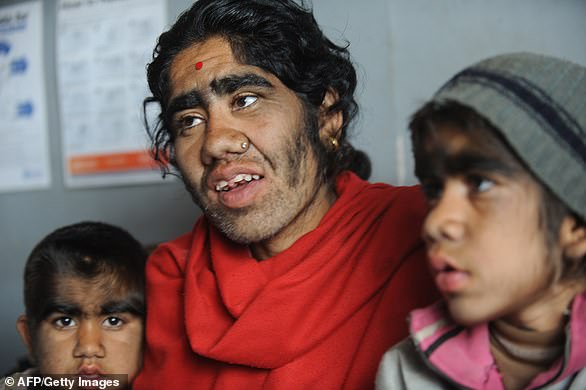Little girl born with ‘werewolf syndrome’ is called ‘child from heaven’ by Malaysian king and queen as her family is invited to meet the royal family
Little girl born with ‘werewolf syndrome’ is called ‘child from heaven’ by Malaysian king and queen as her family is invited to meet the royal family
- Two-year-old Missclyen has a condition that causes excessive hair growth
A two-year-old girl born with the rare ‘werewolf syndrome’ has been dubbed a ‘child from heaven’ by Malaysia’s royal family.
Little Adik Missclyen, from Bintulu, has congenital generalized hypertrichosis, an extremely rare condition that causes her to develop excessive facial and upper body hair.
She and her family had the chance to meet Malaysia’s monarchs this week when the Sultan and his Queen visited her hometown during a tour of the island of Borneo.
Adik and her parents, Roland Jimbai, 47, and Theresa Guntin, 28, were among the residents who lined up to meet the royals on September 11.
Sultan Yang di-Pertuan Agong Al-Sultan Abdullah Ri’ayatuddin Al-Mustafa Billah and his consort Raja Permaisuri Agong Tunku Azizah Aminah Maimunah Iskandariah greeted the little girl.
Two-year-old Missclyen, pictured with her father Roland Jimbai, has a condition that causes excessive hair growth
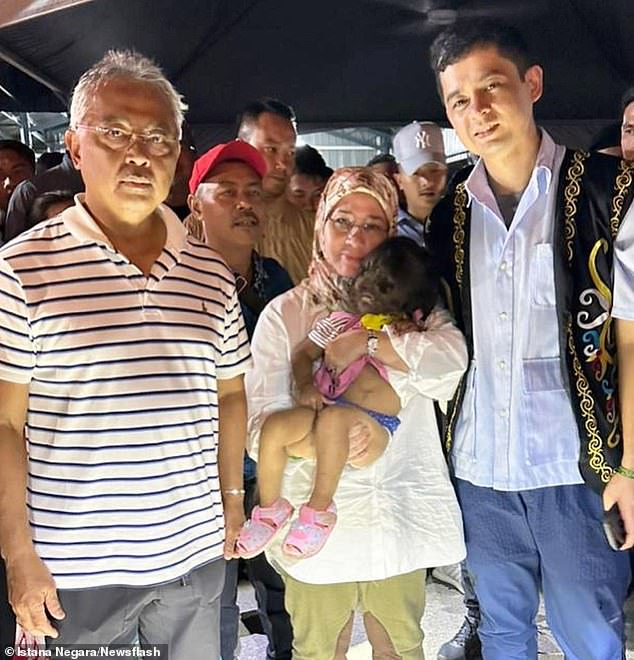
Malaysian monarchs Yang di-Pertuan Agong Al-Sultan Abdullah Ri’ayatuddin Al-Mustafa Billah (left) and Raja Permaisuri Agong Tunku Azizah Aminah Maimunah Iskandariah (center) meeting Missclyen
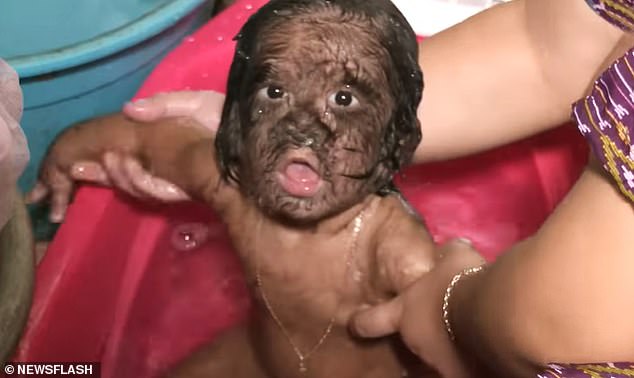
Missclyen was born with the rare condition that causes excessive hair growth on her face
In a heartfelt gesture, the royal couple named the child ‘anak syurga’, which translates to ‘a child from heaven’.
Sultan Abdullah offered words of encouragement to Mr Jimbai before he and the Queen stopped to have their photos taken with the family.
Mr Jimbai told local media: “It was worth the wait when Sultan Abdullah, Tunku Azizah and their children met our family and took photos with Missclyen.
‘I am extremely happy that we had the opportunity to meet the King and Queen. I’m still at a loss for words.
“The king told me to take care of Missclyen, as she is God’s blessing.”
He added: ‘I hope to meet the royal couple again if possible.’
Mr Jimbai told local media: “It was worth the wait when Sultan Abdullah, Tunku Azizah and their children met our family and took photos with Missclyen.
He said people often look at his youngest daughter strangely, adding that some even call her the “animal child.”
He said: ‘Initially we were very hurt and felt stressed. We felt upset and started avoiding taking her to public places except for hospital follow-ups.
“We were so afraid of what people would say.”
Mr Jimbai added that the girl’s rare condition does not affect her health, but she undergoes occasional medical check-ups just to be on the safe side.
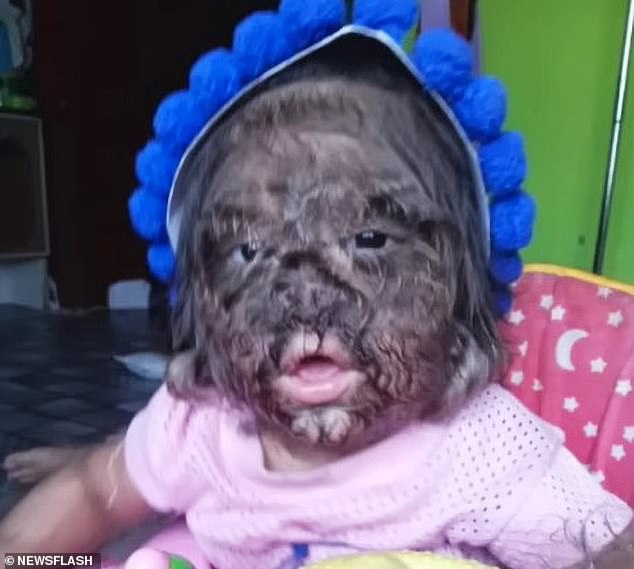
Missclyen’s father said some people can be cruel about her appearance, with some calling her the ‘animal child’
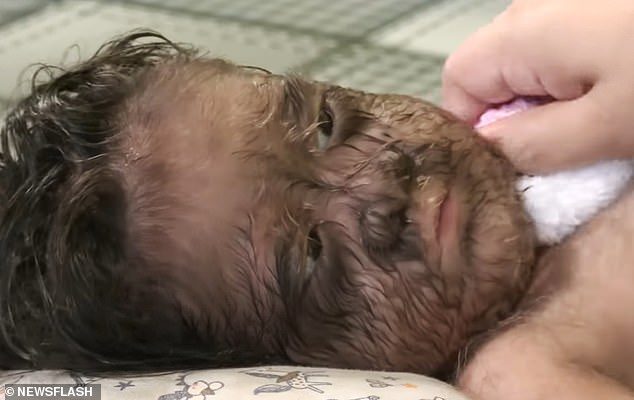
Missclyen is otherwise a healthy little girl who only needs to go to the doctor for a check-up, her father said

